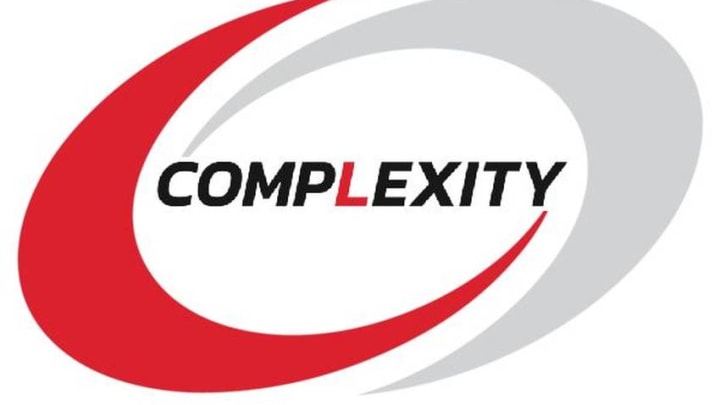Team compLexity, one of the four TI6 wildcard teams, could have a shot at the main event in August. Will acquiring a new coach improve their chances?
CompLexity is one of several teams that has made significant changes to their structure in hopes of having a better shot at TI6. Something about this screams “hail Mary pass” to me, but at the same time, were I in their place, I’d do everything I could to improve my odds. I felt the same way when I heard Escape Gaming signed No Diggity in June. New coach vs new team. It’s going to be interesting to see how that plays out in the wildcards.
Escape Gaming & "No Diggity" join forces to take on The International 6! Welcome to the family guys <3https://t.co/XLD4X6M1fS
— Escape Gaming (@TheEscapeGaming) June 21, 2016
Does a coach by another name smell just as sweet?
Unlike the pre-TI6 player shuffle we saw before the open and main qualifiers, compLexity Gaming seems to be taking a gentler approach to augmenting their odds. They recently wrangled notable DOTA fixture, Alan “Nahaz” Bester, to be their coach. Nahaz is best known as an announcer and statistician, bringing to bear formidable knowledge from his tenure as an economics professor at University of Western Ontario to the DOTA scene.
We are proud to announce that @NahazDota will be joining compLexity as the #coLDota Coach! https://t.co/LDDdKgIeVO pic.twitter.com/kOFaayotIw
— Complexity ✭ (@Complexity) July 18, 2016
But how much does a coach really impact the performance of a team in DOTA? We’ve seen coaches blamed and exalted for the failures and successes of traditional pro-sport teams. DOTA, being the young sport that it is, has little precedent for just how much coaches affect the performance of a team. Aside from, of course, the recent disbandment of Virtus Pro, which was largely blamed on the team’s management.
Traditional: (adj.) a word used to describe not DOTA
Coaches are supposed to be experts in the strategy, tactics, and mechanics of whatever sport they oversee, and Nahaz certainly seems to have that kind of experience. He’s been a key contributor to many premier events, and most of us here at DireDota HQ take his analysis as gospel. But the largest part of traditional coaching, in my opinion, is preparation.

Each team has strengths and weaknesses, and making full use of the strengths while shoring up weaknesses in the pre-season is a coach’s primary responsibility. At least in traditional sports, it is. In traditional sports, though, you have a great deal of physical training and mechanical cohesion that must be instilled deep in muscle memory. We see a lot of this in DOTA, as well. Without practice, no team can have the teamwork necessary to be a serious contender. But I’ve noticed many eSports have what I like to call an “acceleration effect.”
At the top tier of any eSport, most of the players generally have the same base knowledge of game mechanics. The real magic happens in the mind, and this magic happens quick. Talented players utilize a combination of statistical knowledge, intuition, and timing with basic mechanical mastery to put them on another level. And this is the sort of thing a coach can quickly point out in a sport like DOTA to significant effect.
Think about it. How many games have you seen where another team was simply outdrafted? And what about the games where a single player stuck to their comfortable playstyle only to watch a game unravel around them? With Nahaz’s background in statistics, he could easily train his team in the coming weeks to draft to devastating advantage. And he’ll be quick to recognize and isolate the inflexible areas of players on his squad.
So you’re telling us what, exactly?
I’m saying that this is a great opportunity for us to learn more about the behind the scenes action of the DOTA pro-circuit! See, we have this sort of generalized knowledge of “coaching” from society. I’ve been following DOTA since 2004/2005, and I have to admit that I understanding little about how pro-DOTA coaches influence the game. Sure, they help. They have to, otherwise they wouldn’t be used, right? But to what effect? How long does it take for a pro-DOTA coach to “build a legacy” in the way we’ve seen traditional pro-sport coaches? Are DOTA coaches more glorified babysitters, or are they pivotal to the development of team strategy?

If compLexity goes from wildcard to serious contender, think about the effect that’ll have on the structure of the pro-scene. Coaches with the kind of specialized knowledge that Nahaz has will gain even more currency, and who knows? Maybe even some kind of training model will come out of it.
But that’s still a pretty big “if.” I’ll be keeping an eye on you, compLexity. I hope you and your new coach are the breakout team of the season.
For more DOTA 2 news, visit our hub page and follow @diredota on Twitter.
